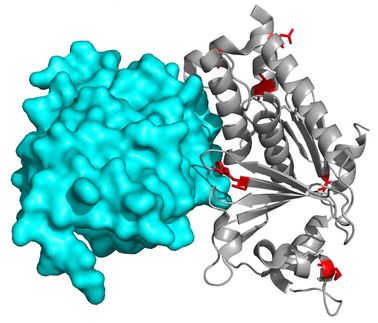Fast-Growing Market for SNPs Products Continues to Grow
The expectation that single nucleotide polymorphism (SNP) genotyping will play a large role in shaping the future of personalized medicine has greatly increased interest in the field of pharmacogenomics. In fact, the results of a recent survey reveal the market for SNP products and services as a fast growing segment of the life science market with forty-eight percent of researchers expecting the number of SNP genotyping experiments they perform to increase in the next 12 months. Suppliers to this market will especially benefit from high-throughput researchers-those who perform more than 1000 SNP genotyping experiments per week-as 75% of this group expects their number of SNPs scored to increase.
In order to benchmark the current state of SNP technologies, BioInformatics, LLC published its latest report "The Market for SNP Genotyping Products & Services." Based on a 34-question survey of more than 500 scientific customers who currently perform SNP genotyping, this report assesses researchers' experimental parameters, sample throughput levels and genotyping methods. Additionally, researchers were asked about improvements to SNP genotyping that would most benefit them as well as challenges of integrating genotyping and pharmacogenetics into clinical practice.
According to the survey, Applied Biosystems, Affymetrix and Illumina are the companies scientists most often turn to for their SNP genotyping products and services. "An interesting finding, though, is that current Applied Biosystems users were more likely than other respondents to anticipate adopting a new genotyping method to accommodate for their expected increase in throughput-which may be a reflection of researchers familiarity with the broad array of alternatives offered by the supplier. Conversely, Affymetrix's product portfolio, which is exclusively microarrays, is less suitable for use with multiple SNP genotyping methods," reported Dr. Robin Rothrock, Director of Market Research at BioInformatics, LLC.
Of all the SNP genotyping methods available, sequencing offers researchers the highest degree of specificity and selectivity due to its redundancy. Restriction fragment length polymorphism (RFLP), TaqMan assays and DNA microarrays are also frequently used genotyping methods.
In addition to having a plethora of genotyping methods from which to choose, respondents are also faced with the consideration of where to do their genotyping. Over half (59%) of all SNP genotyping work is performed in-house with an almost equivalent percentage being outsourced and performed in a core facility or a collaborator's lab. The latter participants cited convenient service, the fact that they cannot justify purchase of an instrumentation platform at current throughput levels and the expertise provided by their SNP genotyping provider as the top three reasons why they outsource.
Researchers believe that decreased cost per SNP analyzed would be the most valuable future improvement to SNP genotyping. "Fortunately, detection methods for SNPs are more amenable to automation, especially for large-scale genetic analysis, which may have the added benefit of resulting in lower pricing," expects Tamara Zemlo, Ph.D., MPH, senior science advisor for BioInformatics, LLC. Overall, 53% of respondents utilize automation-an increase from 39% of respondents in a similar study conducted by BioInformatics in 2002.
When asked about the challenges of integrating SNP genotyping into clinical practice, many researchers report that the biggest setback is the lack of complete genomic solutions in chronic diseases. Other hurdles identified include the ability to demonstrate clinical utility and access to a dedicated professional team to interpret results. Translating this vision of using SNPs in pharmacogenomics to the clinic will require SNP genotyping systems that combine high throughput and accuracy with low cost per SNP analyzed.
"Scientists should look towards future system offerings that combine efficient miniaturization, a high degree of multiplexing and flexible automation to achieve these goals," predicts Zemlo.
Most read news
Topics
Organizations
Other news from the department business & finance

Get the analytics and lab tech industry in your inbox
By submitting this form you agree that LUMITOS AG will send you the newsletter(s) selected above by email. Your data will not be passed on to third parties. Your data will be stored and processed in accordance with our data protection regulations. LUMITOS may contact you by email for the purpose of advertising or market and opinion surveys. You can revoke your consent at any time without giving reasons to LUMITOS AG, Ernst-Augustin-Str. 2, 12489 Berlin, Germany or by e-mail at revoke@lumitos.com with effect for the future. In addition, each email contains a link to unsubscribe from the corresponding newsletter.






























































